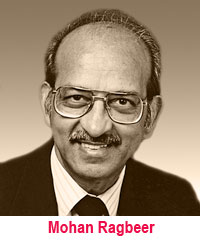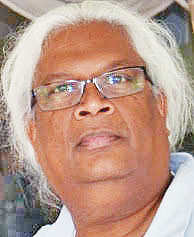Opinions
Hate Crimes

This year, Muslim terrorists killed scores of Indians in Kashmir including the recent suicide bombing of 44 soldiers by Pakistan-sponsored Jaish e Mohamed, a UN-listed terrorist organisation. In January, the Philippine equivalent, Abu Sayyaf, bombed the Catholic Cathedral in Jolo, killing 20 and wounding102. In central Nigeria a few weeks ago, Muslims killed over 20 people with machetes and guns. The Guardian reported that fresh violence broke out in Kaduna on 26 Feb 2019 as “suspected Fulani herdsmen attacked Maro community in Kajuru Local Government Area, killing 16 residents”.
This is just the latest episode of long-standing Islamic violence towards Christians in Nigeria, where Global Terrorism Index reckons that “Fulani herdsmen have killed more than 60,000 people since 2001”. Conversely, a Christian terrorist killed 6, injured 19 in a mosque in Quebec; an anti-immigrant, anti-Muslim and pro-Trump white supremacist Australian killed 50 and injured as many in two mosques in Christchurch, New Zealand. Brenton Tarrant, the killer, acted alone, with machine guns, unlike the rebels of yesteryear who bombed buildings and forewarned of attacks to avoid killing people.
Tarrant reminds one of Norwegian Anders Breivik, who killed over 70 people in 2011, and Dylann Roof, who in 2015 shot nine in a Charleston, USA, church, after posting internet manifestos, like Tarrant, who cited Breivik, and circulated his manifesto on social media, including to New Zealand PM Jacinda Ardern, declaring his intention to kill, displaying his arsenal to Facebook friends.
Among world condemnation, PM Trudeau tweeted, “Canada strongly condemns today’s shootings in New Zealand. Our thoughts and hearts go out to the victims and their families, and we join New Zealanders and Muslim communities around the world in grieving.” Trump condemned the act as "a horrible massacre in the Mosques. But he down-played the rising violence by white supremacists and the increasing numbers of victims these past years, and is reminiscent of race superiority beliefs of a century and a half ago that victimised millions in the west. One expects increased targetting of non-white minorities.
Hindu temple- and festival-goers, with Holi (Phagwah) imminent, need to be alert.
The role of social media, especially Facebook, U-tube and Twitter is most troubling; they facilitate the spread of hate and seem unable to recognise the problem, much less solve or prevent it. To me, it seems clear that closer monitoring of broadcast content is needed, and stricter guidelines for what is acceptable internet behaviour.
The plethora of personal vilification and expression of xenophobic beliefs reveal a colossal ignorance, among users, of one another, of history, of local and world events, and other knowledge needed to engage in meaningful communication and sensible action. The belief in white supremacy is spreading as are cases of white violence, not just against Muslims, whose extremist wings have gone so far forward that they have become the authors of their own victimisation.
Saudi Arabia, the home of the Wahhabis and those who want to bring back an ancient caliphate, with Pakistan, and other centres of Islamic extremism should pull back and re-educate their militants on the inevitability of a world of multiple cultures, hence the wisdom of understanding one another and to live and let live. Pakistan’s ISI for instance still feeds the sinister and deadly JeM that kills thousands in India and foments jihadi behaviours in young Indian Muslims, with promises to endow each martyr in heaven with the stamina of 100 men, and 70-72 self-renewing virgin houris. The references in Islamic writings are an eye-opener.
Saudi Arabia is broadening its economic base, preparing for the end of oil. It plans a world tourism complex in the NW on the Red Sea, based at Tabuk, that would cost probably $500 billion. But to attract international tourists it must shed the image of violence, despite heavy emphasis on Muslim traffic and Hajj pilgrims. Already the enterprise has involved non-Muslim international corporations and persons, one of the first engaged is a Christian German. Maybe this could start the campaign for peace?
In Ottawa the Wilson-Raybould issue has become messy out of proportion to its importance or effects. With no crime committed, a few egos bruised, and ethics demoted, all reversible, a simple apology from PM Trudeau could have avoided the alienation of three women parliamentarians. That didn’t happen, so Trudeau will pay a price, but positive actions between now and the elections, and the forgiveness that comes with genuine regret, might salvage most of his chances for re-election. The alternatives are troubling, if Ontario’s Premier Ford is any guide.
Tarrant reminds one of Norwegian Anders Breivik, who killed over 70 people in 2011, and Dylann Roof, who in 2015 shot nine in a Charleston, USA, church, after posting internet manifestos, like Tarrant, who cited Breivik, and circulated his manifesto on social media, including to New Zealand PM Jacinda Ardern, declaring his intention to kill, displaying his arsenal to Facebook friends.
Among world condemnation, PM Trudeau tweeted, “Canada strongly condemns today’s shootings in New Zealand. Our thoughts and hearts go out to the victims and their families, and we join New Zealanders and Muslim communities around the world in grieving.” Trump condemned the act as "a horrible massacre in the Mosques. But he down-played the rising violence by white supremacists and the increasing numbers of victims these past years, and is reminiscent of race superiority beliefs of a century and a half ago that victimised millions in the west. One expects increased targetting of non-white minorities.
Hindu temple- and festival-goers, with Holi (Phagwah) imminent, need to be alert.
The role of social media, especially Facebook, U-tube and Twitter is most troubling; they facilitate the spread of hate and seem unable to recognise the problem, much less solve or prevent it. To me, it seems clear that closer monitoring of broadcast content is needed, and stricter guidelines for what is acceptable internet behaviour.
The plethora of personal vilification and expression of xenophobic beliefs reveal a colossal ignorance, among users, of one another, of history, of local and world events, and other knowledge needed to engage in meaningful communication and sensible action. The belief in white supremacy is spreading as are cases of white violence, not just against Muslims, whose extremist wings have gone so far forward that they have become the authors of their own victimisation.
Saudi Arabia, the home of the Wahhabis and those who want to bring back an ancient caliphate, with Pakistan, and other centres of Islamic extremism should pull back and re-educate their militants on the inevitability of a world of multiple cultures, hence the wisdom of understanding one another and to live and let live. Pakistan’s ISI for instance still feeds the sinister and deadly JeM that kills thousands in India and foments jihadi behaviours in young Indian Muslims, with promises to endow each martyr in heaven with the stamina of 100 men, and 70-72 self-renewing virgin houris. The references in Islamic writings are an eye-opener.
Saudi Arabia is broadening its economic base, preparing for the end of oil. It plans a world tourism complex in the NW on the Red Sea, based at Tabuk, that would cost probably $500 billion. But to attract international tourists it must shed the image of violence, despite heavy emphasis on Muslim traffic and Hajj pilgrims. Already the enterprise has involved non-Muslim international corporations and persons, one of the first engaged is a Christian German. Maybe this could start the campaign for peace?
In Ottawa the Wilson-Raybould issue has become messy out of proportion to its importance or effects. With no crime committed, a few egos bruised, and ethics demoted, all reversible, a simple apology from PM Trudeau could have avoided the alienation of three women parliamentarians. That didn’t happen, so Trudeau will pay a price, but positive actions between now and the elections, and the forgiveness that comes with genuine regret, might salvage most of his chances for re-election. The alternatives are troubling, if Ontario’s Premier Ford is any guide.
Hidden trauma drives cruel neighbour
 Romeo Kaseram
Romeo Kaseram
I greeted Nani with respect whenever I met her, reaching out as Ma taught me in my formative years when I was growing up back home.
Ma said: “Always say ‘Morning’ first; don’t let the neighbour pass you by. It will show respect, and since you are a little boy, you have to be respectful to adults.” I watched Ma closely whenever we went out to see if she practised what she preached. I noted she clasped her hands and bowed her head whenever we went to the Mandir, pausing at the door respectfully with her bare feet together on the cold concrete before she stepped into the sacred space. She also greeted
her peers with a similar respect, approaching hesitantly to sit outside their warm circle of sisterhood. I also noted how she bent her head, and kept her peace while we were at church, when these kind old ladies were being cruel, asking her between the sessions of prayer, with voices dripping with fake innocence, “Mammy, how come you raising this little boy on your own? Where is his mother?” And then addressing me, despite the stern gaze of the many gods with dual faces and multiple arms, these inquiring ladies would say, “Little boy! Where are your mammy and your pappy? Why did they leave you with your grandmother?” They would titter in unison, cackling to each other, elbowing another to launch a fresh assault on Ma before the next prayer.
Speechless at their verbal assaults, I would look to Ma for guidance, only to be cautioned with the eloquence of persecution in her haunted eyes. Ma endured these taunts, turning her head away and gazing with wet-eyes at the yellow lamps flickering beneath the gods, while thin threads of lazy smoke lifted from sticks of incense with a wholesome, religious scent.
Nani was among these nice and caring ladies, who squatting on the floor, and raising praises to the deities in unison, engaged in taunting Ma about the parental abandonment of her precious grandson. I held on dearly to her calloused hand for its warmth, tracing the arthritic bumps on her knuckles for solace. I recalled being in the swim of worshippers, tossed by the current of their feet as we left the church and its darkened interior, to be momentarily blinded by the bright, welcoming sunshine outside.
Despite my reservations, yet I practised Ma’s lessons in respect. When I met Nani in the dirt track between the standpipe leading to her house, as she laboured with water buckets, one balanced on her head, another slopping from an extended arm, I made way for her, standing in the long-grass wet with cold morning dew as she trundled past.
It was my duty to greet her, as Ma had taught me, saying, “Morning, Nani.” For good measure, I also bowed my head, elevating her to the respectful place reserved for the prominent, learned, and divine.
Perhaps Nani was overwrought with her morning chores. It was a hard life then, waking up early, just after the crowing of the roosters, to start a wood fire, cook roti and curried peas, boil water for coffee or tea, and pack lunch for her husband to take to the cane-fields.
When early morning preparations for her husband were done, it was then time for Nani to take care of husbandry of the animals in the backyard – there were impatient chickens, ducks sifting with beaks immersed in a muddy pool, and goats bleating piteously for attention.
Meanwhile, Nani’s brood of children were waking up, already fighting among themselves, with voices raised over appropriations of the bigger chunks of roti, or the hijacking of a pair of underwear, or the eternal fight for the little water left over from the night before in the barrel for the morning’s bath before school. Always, the older siblings bullied the younger ones, the episodes escalating into wailing and appeals to the burdened, overwrought Nani for the dispensation of justice.
So, it was understandable Nani’s response would be gruff, and even downright impolite: “Little boy, get out of my way before I throw this water down on your head. You don’t see I have to pass? So get out of my way before I put down this bucket and cut your tail!”
If she took out her vexations on me, despite my show of respect, then perhaps it was how she viewed me in the context of my protector. Ma’s response to the taunts at church was to cover me protectively with her skirt. That this gesture of enclosure was read as ineffective was noticeably evident in Nani’s subsequent mockery: “Little boy, your grandmother not here to hide you under her skirt. Make haste out of my way!”
I thrived, and Nani grew old. One day in her senior years, Nani gazed at me through a haze of cataracts, addressing me respectfully, her lamentation the trauma of a pleading, abandoned child: “Master, please help me! My mother and father have left me here. I am a little girl. They are forcing me to marry a cruel man.”
Speechless at their verbal assaults, I would look to Ma for guidance, only to be cautioned with the eloquence of persecution in her haunted eyes. Ma endured these taunts, turning her head away and gazing with wet-eyes at the yellow lamps flickering beneath the gods, while thin threads of lazy smoke lifted from sticks of incense with a wholesome, religious scent.
Nani was among these nice and caring ladies, who squatting on the floor, and raising praises to the deities in unison, engaged in taunting Ma about the parental abandonment of her precious grandson. I held on dearly to her calloused hand for its warmth, tracing the arthritic bumps on her knuckles for solace. I recalled being in the swim of worshippers, tossed by the current of their feet as we left the church and its darkened interior, to be momentarily blinded by the bright, welcoming sunshine outside.
Despite my reservations, yet I practised Ma’s lessons in respect. When I met Nani in the dirt track between the standpipe leading to her house, as she laboured with water buckets, one balanced on her head, another slopping from an extended arm, I made way for her, standing in the long-grass wet with cold morning dew as she trundled past.
It was my duty to greet her, as Ma had taught me, saying, “Morning, Nani.” For good measure, I also bowed my head, elevating her to the respectful place reserved for the prominent, learned, and divine.
Perhaps Nani was overwrought with her morning chores. It was a hard life then, waking up early, just after the crowing of the roosters, to start a wood fire, cook roti and curried peas, boil water for coffee or tea, and pack lunch for her husband to take to the cane-fields.
When early morning preparations for her husband were done, it was then time for Nani to take care of husbandry of the animals in the backyard – there were impatient chickens, ducks sifting with beaks immersed in a muddy pool, and goats bleating piteously for attention.
Meanwhile, Nani’s brood of children were waking up, already fighting among themselves, with voices raised over appropriations of the bigger chunks of roti, or the hijacking of a pair of underwear, or the eternal fight for the little water left over from the night before in the barrel for the morning’s bath before school. Always, the older siblings bullied the younger ones, the episodes escalating into wailing and appeals to the burdened, overwrought Nani for the dispensation of justice.
So, it was understandable Nani’s response would be gruff, and even downright impolite: “Little boy, get out of my way before I throw this water down on your head. You don’t see I have to pass? So get out of my way before I put down this bucket and cut your tail!”
If she took out her vexations on me, despite my show of respect, then perhaps it was how she viewed me in the context of my protector. Ma’s response to the taunts at church was to cover me protectively with her skirt. That this gesture of enclosure was read as ineffective was noticeably evident in Nani’s subsequent mockery: “Little boy, your grandmother not here to hide you under her skirt. Make haste out of my way!”
I thrived, and Nani grew old. One day in her senior years, Nani gazed at me through a haze of cataracts, addressing me respectfully, her lamentation the trauma of a pleading, abandoned child: “Master, please help me! My mother and father have left me here. I am a little girl. They are forcing me to marry a cruel man.”
